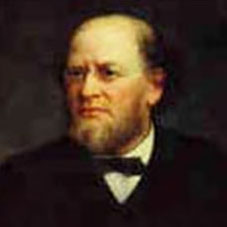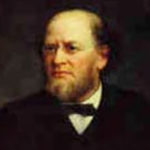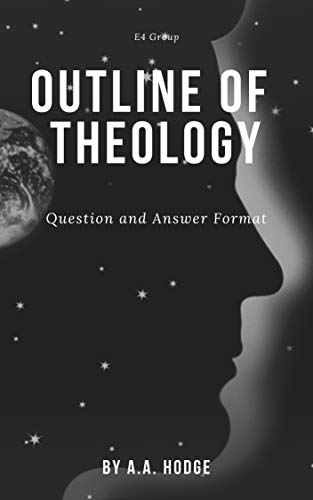
Quotes by A.A. Hodge
Men must interpret to the best of their ability each particular part of Scripture separately, and then combine all that the Scriptures teach upon every subject into a consistent whole, and then adjust their teachings upon different subjects in mutual consistency as parts of a harmonious system. Every student of the Bible must do this, and all make it obvious that they do it by the terms they use in their prayers and religious discourse, whether they admit or deny the propriety of human creeds and confessions. If they refuse the assistance afforded by the statements of doctrine slowly elaborated and defined by the Church, they must make out their own creed by their own unaided wisdom. The real question is not, as often pretended, between the word of God and the creed of man, but between the tried and proved faith of the collective body of God’s people, and the private judgment and the unassisted wisdom of the repudiator of creeds.
You cannot take Christ for justification unless you take Him for sanctification. Think of the sinner coming to Christ and saying, “I do not want to be holy;” “I do not want to be saved from sin;” “I would like to be saved in my sins;” “Do not sanctify me now, but justify me now.” What would be the answer? Could he be accepted by God? You can no more separate justification from sanctification than you can separate the circulation of the blood from the inhalation of the air. Breathing and circulation are two different things, but you cannot have the one without the other; they go together, and they constitute one life. So you have justification and sanctification; they go together, and they constitute one life. If there was ever one who attempted to receive Christ with justification and not with sanctification, he missed it, thank God! He was no more justified than he was sanctified.
A church has no right to make anything a condition of membership which Christ has not made a condition of salvation.
It is easier to find a score of men wise enough to discover the truth than to find one intrepid enough, in the face of opposition, to stand up for it.
It is to be lamented that the term irresistible grace has ever been used, since it suggests the idea of a mechanical and coercive influence upon an unwilling subject, while, in truth, it is the transcendent act of the infinite Creator, making the creature spontaneously willing.
Nothing in the world so tends to defile the imagination, to pervert the affections, and to corrupt the morals, as self-consciousness. You know it is connected with every disease and morbid action of the body. …All self-consciousness is of the very essence and nature of sin.
There is nothing in the world that works such satanic, profound, God-defiant pride as false assurance; nothing works such utter humility, or brings to such utter self-emptiness, as the child-like spirit of true assurance.
Heaven, as the eternal home of the divine Man and of all the redeemed members of the human race, must necessarily be thoroughly human in its structure, conditions, and activities. Its joys and its occupations must all be rational, moral, emotional, voluntary, and active. There must be the exercise of all faculties, the gratification of all tastes, the development of all talent capacities, the realization of all ideals. The reason, the intellectual curiosity, the imagination, the aesthetic instincts, the holy affections, the social affinities, the inexhaustible resources of strength and power native to the human soul, must all find in heaven exercise and satisfaction.


